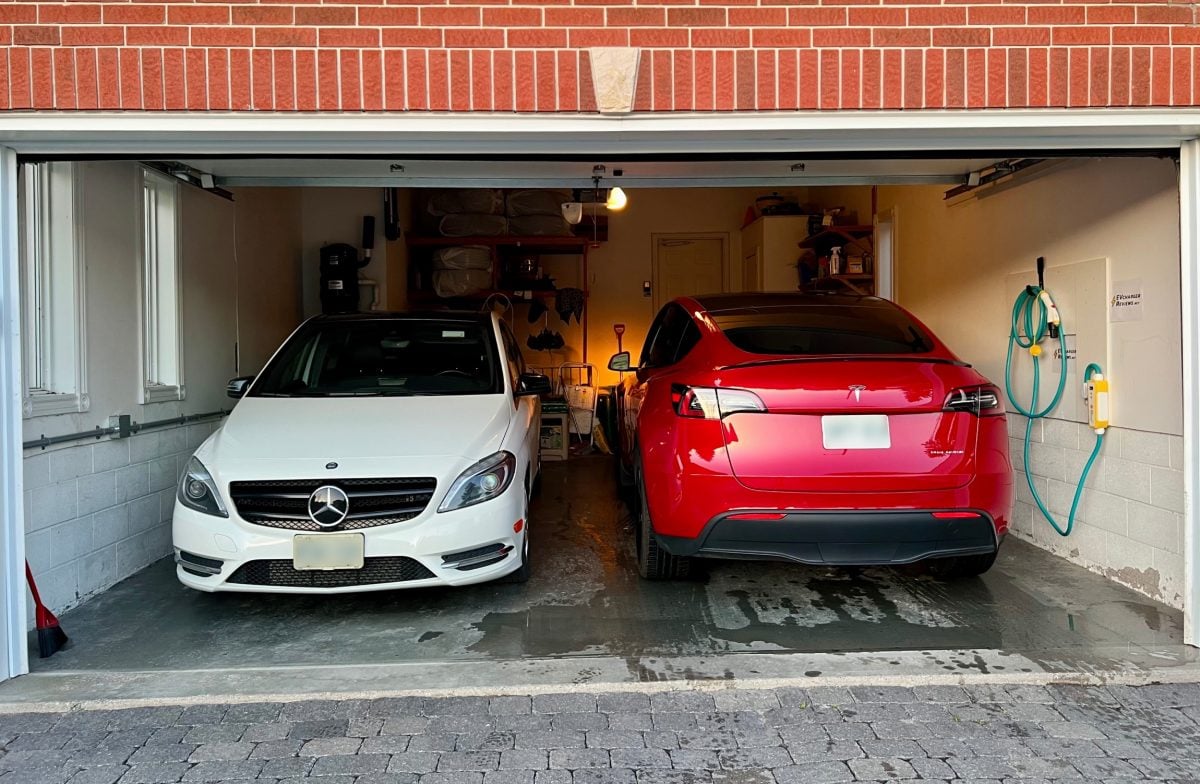Fully electric cars continue to grow their market share or new car sales worldwide, and hovering around 6-7% in the US in recent months. In urban areas especially, EVs can be spotted at pretty much every intersection. As we’re approaching the inflection point, electric cars are popular not only with early adopters but with regular people and families too.
In a typical North American two-car family household, there is now no reason why one car can’t be fully electric. “Range anxiety” is often stated as the number one concern about switching to electric. There is still some truth to range anxiety when it comes to cross-country long-distance travel, but there is no reason why your commuter/grocery-getter vehicle needs a 500-mile range.
Most driving is routine, predictable, and short-distance. Let an EV do the mundane miles on your errands, and save your gasoline-combustion sports car for special occasions. Let an efficient EV take you to work, and your second ICE car will take you cross-country. (Having that said, enthusiast EVs are coming, and electric long-distance travel is already manageable with access to Tesla Supercharges.)
Why I think at least one out of your two-car household should be electric:
1. Tech and Convenience
Most of the driving we do day to day isn’t particularly novel or exciting. We drive to familiar places, and most often sit in bumper-to-bumper traffic in urban areas. When I jump back into combustion cars, I am reminded why EVs are so good at boring drives: (1) the lack of engine and transmission ratios makes for a very smooth and quiet motion through traffic, and (2) driver assistance features such adaptive cruise control can automate repetitive throttle/braking inputs in bumper to bumper traffic. Those two features combined make for a very stress-free commute, and you will find that most new EVs have both. Having an EV commuter car also means of course, that you don’t ever need to go out of your way to fill up.
2. Environmental and Health Benefits
It’s well established that a gasoline-burning car produces a lot more pollution and climate-changing gasses than a battery-electric car. The degree to which individuals care about collective climate issues will vary from person to person, but I think most people will care about their own health and the health of their families. Gasoline fuel and gasoline exhaust gasses are both toxic and can lead to health problems after long-term exposure.
After driving electric cars for a while, I became more sensitive to just how dirty combustion cars are. When I occasionally go to fill up an ICE car at a gas station, I now notice the dirty gasoline fumes in the air and droplets all over the ground. How many times have you left a gas station with your hands smelling like gasoline after handling the pump? Even just doing an engine cold start in your own garage, the space fills up with toxic gasses. Those can’t possibly be good for you to breathe, and those toxins linger in the air for minutes.
3. The Dollars and Cents
You could argue that the first two reasons above come from sitting on top of a high (electric) horse. Electric cars are just for the wealthy, right? It boils down to the economics of ownership to get the attention of the masses.
There has been something very interesting happening in the market for EVs over the last couple of months. While battery and manufacturing are steadily coming down, increased competition between car brands has also sparked a bit of a price war. On top of all that, the US government’s Inflation Reduction Act has an EV subsidy component that can now be applied to cars at the point of sale. This means that monthly payments on brand-new EVs can sometimes undercut payments of equivalent gasoline combustion cars.
When the $7,500 subsidies are applied to leases, EVs become extremely cost-competitive to drive. For example, Toyota had been recently leasing out the bZ4X for the monthly payment equivalent of 2-3 gas fill-ups. BMW’s fully electric i4 coupe is cheaper to lease than the slower 430i with a 2-liter engine. When you consider the cost difference between electricity and gasoline fuel, the total monthly costs are in even more favor of driving electric.
Considering buying a Tesla? Use our referral link to get $1,000 off, and help support our content.
